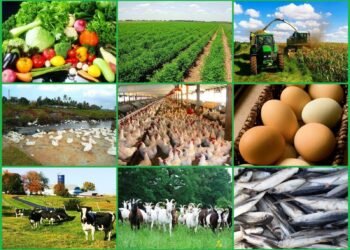Poultry farmers in the Sunyani Municipality are sounding the alarm on the crippling impact of high interest rates, which they claim are driving their businesses to the brink of collapse. These farmers are urging the government to step in and provide “soft loans” and subsidies to sustain and expand their economic activities.
Mr. Charles Korang, Chairman of the Sunyani Municipal branch of the Poultry Farmers Association, voiced these concerns. Mr. Korang, who also serves as the Managing Director of Krobea Farms, highlighted the severe financial strain that exorbitant interest rates from banks and other financial institutions are placing on poultry farmers.
“Interest on credit facilities is excessively high, but we have no alternative but to rely on these financial institutions. This situation is stretching us thin.”
Mr. Charles Korang, Chairman of the Sunyani Municipal branch of the Poultry Farmers Association
Mr. Korang emphasized that without intervention, many poultry farms are at risk of shutting down, which would have dire consequences for local employment and food security.
Mr. Korang’s farm, which houses over 10,000 birds, is one of many struggling under the weight of financial burdens. He explained that the poultry industry, which has the potential to significantly contribute to the local economy, is facing a bleak future due to these high interest rates.
The discrepancy between what farmers earn and what they have to repay is unsustainable. “We take less and pay more to the banks. They are stretching us too much and that is not auguring well for the growth and development of our businesses,” Mr. Korang stated.
In light of these challenges, Mr. Korang called on the government to collaborate with the Poultry Farmers Association to provide deserving farmers with soft loans and other incentives. He believes that such support would empower farmers to expand their operations, thereby creating more jobs and contributing to economic growth.
“The government could liaise with us and provide soft loans and subsidies on concentrates,” he suggested. This, he argued, would not only make the poultry industry more attractive to the unemployed youth but also enhance productivity among existing farmers.
Broader Economic Implications
Beyond the immediate financial struggles, Mr. Korang pointed out the lack of ready markets and processing facilities as another significant hurdle for the poultry industry. He called on the government to address these issues as well, noting that investment in processing facilities could boost the sector’s productivity and economic viability.
“The poultry sector has huge economic prospects. With substantial investments, the poultry value chain could create thousands of jobs and help tackle the nation’s unemployment problem.”
Mr. Charles Korang, Chairman of the Sunyani Municipal branch of the Poultry Farmers Association
Mr. Korang added that the industry, with proper support, could advance national food security and increase Ghana’s foreign income through the export of processed poultry products.
The appeal from Mr. Korang and his fellow poultry farmers highlights a critical need for government intervention to save an industry teetering on the edge. Providing soft loans and subsidies could be a lifeline for these farmers, enabling them to navigate the high-interest rates and invest in their operations.
Moreover, addressing the market and processing infrastructure gaps could unlock the full potential of the poultry sector. By doing so, the government would not only support the livelihoods of poultry farmers but also contribute to broader economic development goals, including job creation and food security.
The plea from the poultry farmers in Sunyani Municipality is a call to action for the government. As they grapple with high interest rates and financial instability, these farmers need immediate and substantial support to sustain their businesses and continue contributing to the local and national economy. Soft loans, subsidies, and investments in processing infrastructure could transform the poultry industry, making it a pillar of economic growth and employment in Ghana.
The future of the poultry industry, and indeed the economic well-being of many Ghanaians, hinges on the government’s response to this urgent appeal. It is a pivotal moment for policymakers to demonstrate their commitment to supporting local industries and fostering sustainable economic development.
READ ALSO: Stanbic Bank Advocates For Passion-Driven Entrepreneurship























